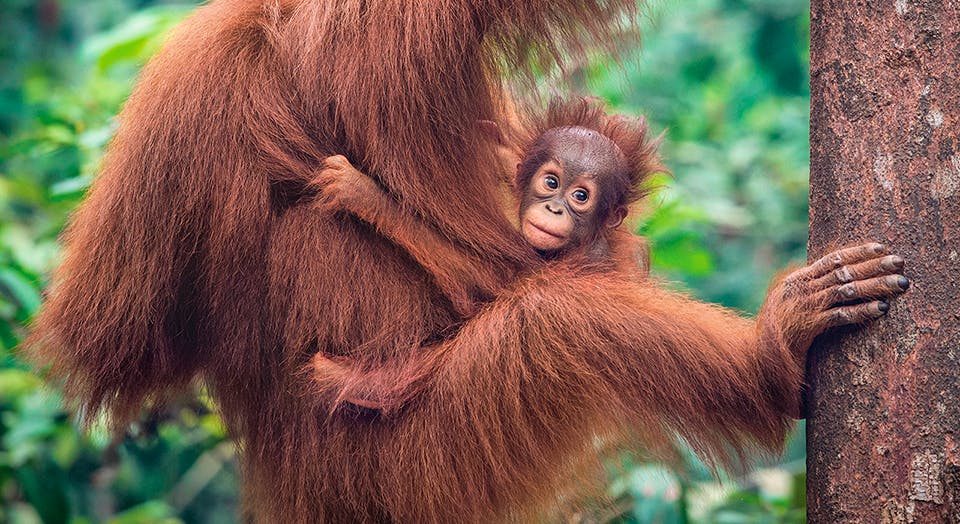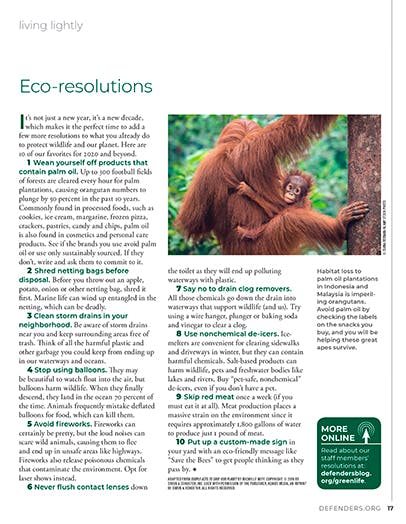Eco-resolutions
It’s not just a new year, it’s a new decade, which makes it the perfect time to add a few more resolutions to what you already do to protect wildlife and our planet. Here are 10 of our favorites for 2020 and beyond.
1. Wean yourself off products that contain palm oil. Up to 300 football fields of forests are cleared every hour for palm plantations, causing orangutan numbers to plunge by 50 percent in the past 10 years. Commonly found in processed foods, such as cookies, ice cream, margarine, frozen pizza, crackers, pastries, candy and chips, palm oil is also found in cosmetics and personal care products. See if the brands you use avoid palm oil or use only sustainably sourced. If they don’t, write and ask them to commit to it.
2. Shred netting bags before disposal. Before you throw out an apple, potato, onion or other netting bag, shred it first. Marine life can wind up entangled in the netting, which can be deadly.
3. Clean storm drains in your neighborhood. Be aware of storm drains near you and keep surrounding areas free of trash. Think of all the harmful plastic and other garbage you could keep from ending up in our waterways and oceans.
4. Stop using balloons. They may be beautiful to watch float into the air, but balloons harm wildlife. When they finally descend, they land in the ocean 70 percent of the time. Animals frequently mistake deflated balloons for food, which can kill them.
5. Avoid fireworks. Fireworks can certainly be pretty, but the loud noises can scare wild animals, causing them to flee and end up in unsafe areas like highways. Fireworks also release poisonous chemicals that contaminate the environment. Opt for laser shows instead.
6. Never flush contact lenses down the toilet as they will end up polluting waterways with plastic.
7. Say no to drain clog removers. All those chemicals go down the drain into waterways that support wildlife (and us). Try using a wire hanger, plunger or baking soda and vinegar to clear a clog.
8. Use nonchemical de-icers. Ice-melters are convenient for clearing sidewalks and driveways in winter, but they can contain harmful chemicals. Salt-based products can harm wildlife, pets and freshwater bodies like lakes and rivers. Buy “pet-safe, nonchemical” de-icers, even if you don’t have a pet.
9. Skip red meat once a week (if you must eat it at all). Meat production places a massive strain on the environment since it requires approximately 1,800 gallons of water to produce just 1 pound of meat.
10. Put up a custom-made sign in your yard with an eco-friendly message like “Save the Bees” to get people thinking as they pass by.
Adapted from Simple Acts to Save Our Planet by Michelle Neff. Copyright © 2018 by Simon & Schuster, Inc. Used with permission of the publisher, Adams Media, an imprint of Simon & Schuster. All rights reserved.
Photo credit: © Diana Rebman/Alamy Stock Photo

